Brazilian consumers find relief from China
Updated: 2016-01-25 06:10
By SHU JIE and MAO PENGFEI in Rio de Janeiro for China Daily(China Daily Latin America)
|
|||||||||
"The Year of the Used Car" is what an auto dealer in Sao Paulo called 2015 in Brazil. More and more motorists opted for used cars to save money and to better cope with Brazil's recession and inflation.
According to statistics released by the Auto Dealers Association of Brazil, more than 4 million used cars were sold in Brazil last year, 1 million more than in 2013.
Rich people with financial burdens replaced their luxury cars with relatively inexpensive ones, and the middle class turned to used cars.
The used-car buying trend encapsulates how Brazilians are coping with a recession that has affected all aspects of their lives.
According to official data released on Jan 8, inflation in Brazil reached 10.67 percent in 2015, a much higher rate than the government target of 6.5 percent (with a two-point margin up or down), and the highest rate since 2002. The main factors driving the increase were food, housing and transportation costs.
Last year, food prices rose 12.03 percent, 4 percent more than in 2014. The price of staple ingredients like onions, cassava, garlic and tomatoes all went up by more than 50 percent. Housing-related expenses rose 18.31 percent, and transportation costs also increased, by 10.16 percent.
Inflation has a direct impact on Brazilians' quality of life, and the most vulnerable are those making the lowest wages.
Angela Silva, in her 40s, works as a maid by day and holds a part-time job at a first-aid clinic in the evening; she can barely spare any time for her children.
Her family was forced to forgo milk and cereal for breakfast in the second half of last year and began making tapioca with eggs, a popular "meal of the poor" in Brazil, for lunch.
To buy cheaper bread and other daily necessities, her husband would take a bus to a supermarket in one of the city's favelas, or slums, spending two hours on the commute.
Brazil's sizable middle class also was affected to a degree, as the significant drop in holiday sales showed. Many families prepared simpler Christmas Eve dinners and exchanged more economical Christmas gifts.
But many Brazilians have turned to another option. Increasing economic cooperation between Brazil and China has made inexpensive, good-quality Chinese goods more available for Brazilians — and more popular.
Chinese e-commerce giant Alibaba Group Holding Ltd has developed rapidly in Brazil since it entered the market in 2011. More than 6 million Brazilians are now registered users of its online-shopping platform AliExpress, which features economical goods made in China.
Rene Vargas, an online-shopping enthusiast, uses both Alibaba and AliExpress to make purchases, impressed by the variety of goods offered. Despite the longer delivery periods, Vargas said it's worth his while to buy Chinese goods online because they are much cheaper than those in Brazil.
He believes the Chinese online-shopping platform will become more popular in Brazil because it saves people money.
Electronics maker Xiaomi Inc is another popular Chinese import, entering the Brazilian market last year with a series of well-priced smartphones.
During the company's commercial launch on July 7, 2015, when Xiaomi's Brazilian website began offering the Redmi 2 smartphone online, the rush of customers caused the site to crash.
Carlos Sasi was one of those consumers. Despite trying unsuccessfully for two hours to get the phone online, he still wanted to buy one, given its price and quality.
Cost-effective Chinese goods are benefiting average Brazilians squeezed by the ongoing recession and inflation. But Brazilians are famously good- natured and optimistic. When night falls, restaurants and bars in downtown Sao Paulo bustle with people as always, which makes it hard to believe the country is in a recession.
For the locals, the best way to spend time after a busy workday is chatting and having a drink with friends. That hasn't changed, though today they might bring a bottle of wine along, instead of paying more for it at the establishment.
- Netizen backlash 'ugly' Spring Festival Gala mascot
- China builds Mongolian language corpus
- China's urban unemployment rate steady at 4.05 pct
- German ecologist helps relieve poverty in Sichuan
- 'Unhurried' Guizhou village makes NY Times list of places to visit
- Railway police nab 40,315 fugitives in 2015
- 7 policemen, 3 civilians killed in Egypt's Giza blast
- Former US Marine held in Iran arrives home after swap
- Powerful snowstorm threatens US East Coast; flights canceled
- 2015 Earth's hottest year on record: US agencies
- 8 killed in car bomb near Russian Embassy in Kabul
- Researchers find possible ninth planet beyond Neptune
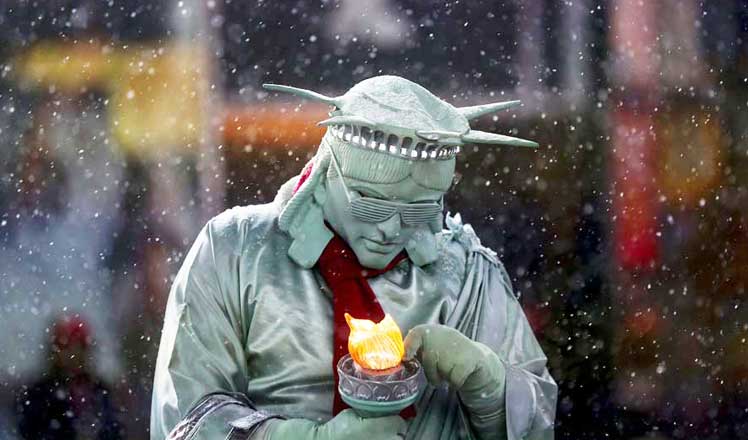
 Storm grips New York after dumping 2 feet of snow on Washington
Storm grips New York after dumping 2 feet of snow on Washington
 Art exhibitions in 2016 worth seeing
Art exhibitions in 2016 worth seeing
 Winter flexes its muscles as cold snap makes its way
Winter flexes its muscles as cold snap makes its way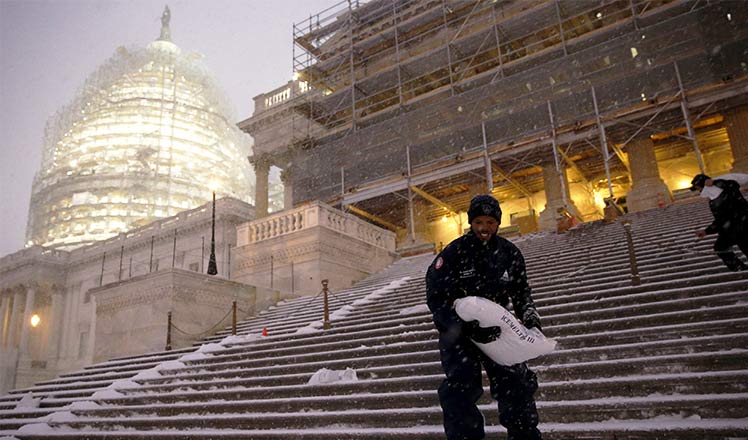
 Snow blankets Washington D.C. in potentially record-breaking storm
Snow blankets Washington D.C. in potentially record-breaking storm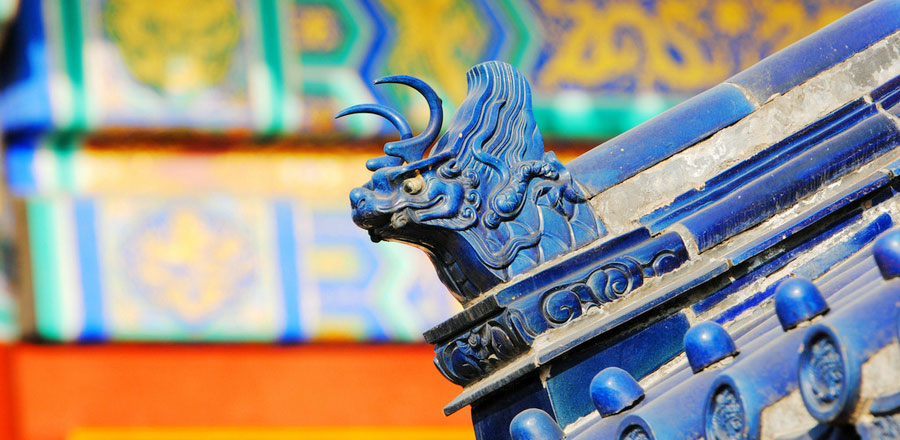
 Bright Temple of Heaven shines in winter
Bright Temple of Heaven shines in winter
 Netizen backlash 'ugly' Spring Festival Gala mascot
Netizen backlash 'ugly' Spring Festival Gala mascot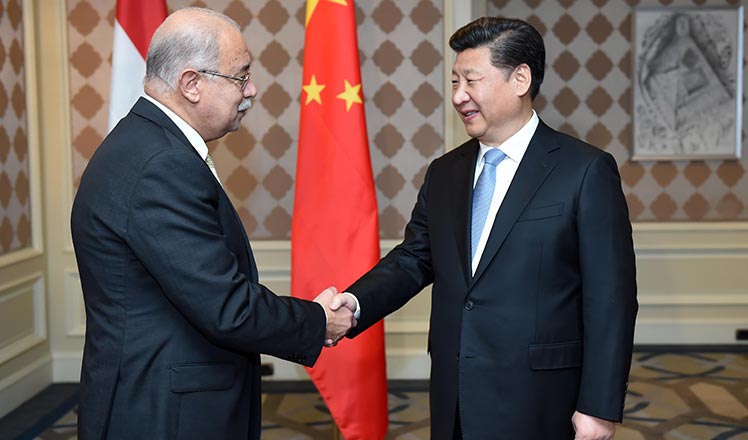
 Egyptian welcome for Chinese President Xi Jinping
Egyptian welcome for Chinese President Xi Jinping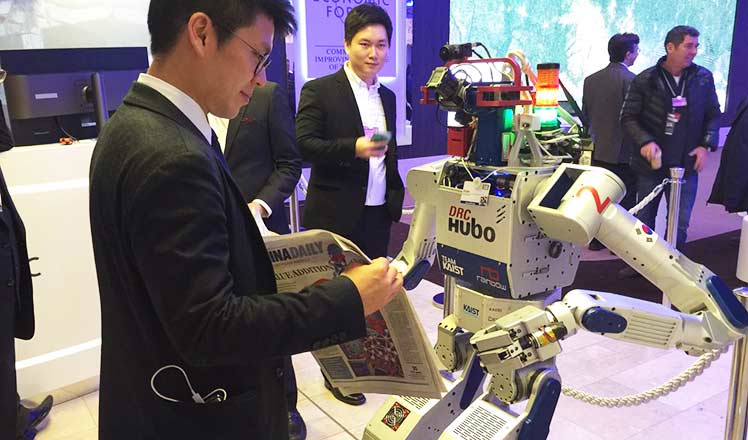
 Robots reads China Daily to stay up to date with news in Davos
Robots reads China Daily to stay up to date with news in Davos
Most Viewed
Editor's Picks

|

|

|

|

|

|
Today's Top News
National Art Museum showing 400 puppets in new exhibition
Finest Chinese porcelains expected to fetch over $28 million
Monkey portraits by Chinese ink painting masters
Beijing's movie fans in for new experience
Obama to deliver final State of the Union speech
Shooting rampage at US social services agency leaves 14 dead
Chinese bargain hunters are changing the retail game
Chinese president arrives in Turkey for G20 summit
US Weekly

|

|








